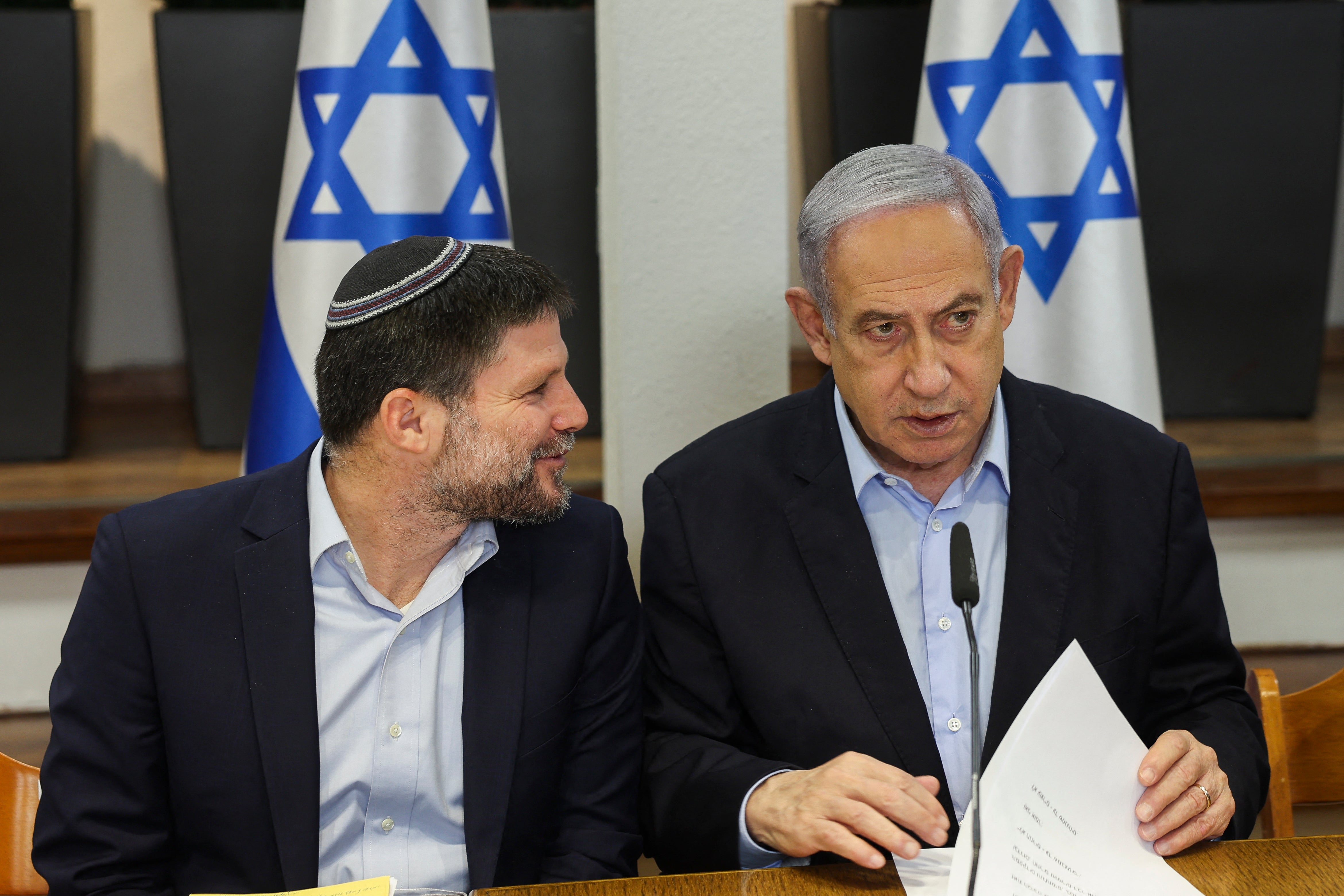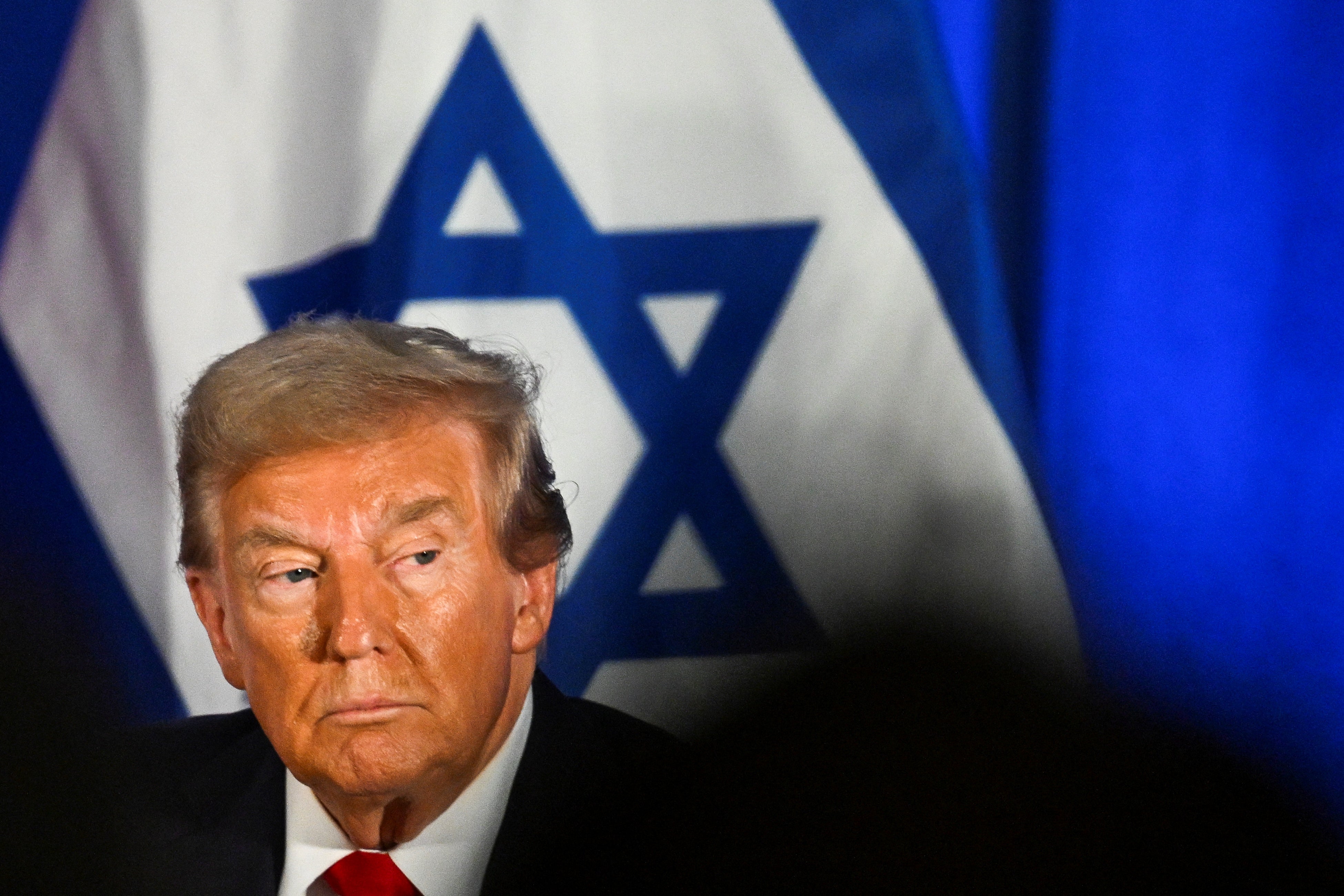Israel’s far-right minister of finance said that Donald Trump’s presidential election win means the “time has come” to annex the West Bank.
During a meeting with his faction in parliament, Bezalel Smotrich said he intends to “work with the new administration of President Trump and the international community to apply sovereignty and achieve American and international recognition” for the move. He also added he has directed various Israeli agencies to begin preparations.
Smotrich, a settler himself, said the Trump administration “brings an important opportunity for the state of Israel,” and that further extension of Israeli sovereignty over the region was the only way to remove the “threat” of a Palestinian state.
Israeli foreign minister Gideon Sa’ar said on Monday no formal plan to annex the West Bank has been decided, but “if it will be relevant it will be discussed again with our friends in Washington.”

The Palestinian Authority, which maintains partial control over the West Bank, called the Smotrich statements “a blatantly colonial and racist extension of the ongoing campaign of extermination and forced displacement against the Palestinian people.”
The West Bank was seized from Jordan during the 1967 Arab-Israel War. Since then, Israel has supported the settlement of some 700,000 Jews across roughly 160 settlements in the West Bank and East Jerusalem, a practice considered by most international observers to be illegal under international law governing occupied territories. Israeli Prime Minister Benjamin Netanyahu claims the territories are part of the Jewish state’s present and ancestral territory.
The first Trump administration helped secure many of the Netanyahu government’s priorities: declining to oppose West Bank settlement; pulling the U.S. out of the Iran nuclear deal; recognizing Jerusalem as the capital of Israel; affirming Israel’s claims to sovereignty over the Golan Heights, captured from Syria during the 1967 war; and brokering the Abraham Accords, a series of normalization agreements between Israel and several Middle Eastern states.

The Biden administration left many of these moves in place, keeping the U.S. embassy in Jerusalem and the new Iran policy, while continuing to pursue normalization between Israel and Saudi Arabia and providing extensive military aid to Israel throughout its war with Hamas after the October 7 terror attacks.
On the campaign trail, Trump, promised to bring “peace in the Middle East,” while offering few details on how.
He criticized the Harris campaign for prominently featuring former congresswoman Liz Cheney, daughter of former Bush administration vice president Dick Cheney, arguing the latter “virtually destroyed the Middle East” during his time presiding over the wars in Iraq and Afghanistan.
At the ballot box, some Muslim voters moved away from the Democratic party, a surprise for observers who thought Trump’s frequent, quasi-fascistic attacks on migrants and White House travel ban on largely Muslim-majority countries would harm his support.

A majority of Muslim voters backed the Green Party’s Dr. Jill Stein, with 21.4 percent supporting Trump and 20.3 percent for Harris, according to an exit poll from the Council on Americna-Islamic Relations.
Rabiul Chowdhury, founder of Muslims for Trump, toldThe Guardian the shift was a protest vote against the Democrats from citizens upset with the Biden administration, which has continued to support Israel as the Gaza war turns into what some international observers have declared is a genocide.
“Everyone’s ultimate goal was to punish Harris and the best way to do this was to vote for Trump,” Chowdhury said.
Some argued that Muslim and Arab-American voters didn’t believe Harris had done enough to stop the Israel-Hamas conflict.
“All Kamala had to do was pick up the phone and stop Israel from continuing its genocide against the Palestinians, and she would have won. Ronald Regan did it. Instead of trying to win the Muslim/Arab vote she remained staunch in her support of white supremacy, apartheid, and genocide,” Mariam Abu Tarboush, of Detroit’s American Muslims for Palestine, told Middle East Eye.
Since the October 7 conflict began, violence in the West Bank has skyrocketed. Between October 7, 2023, and late September 2024, the Israel Defense Forces and settlers killed 693 Palestinians, a period in which Palestinians killed 23 Israelis, according to the United Nations.
Even before the war, Israel was ramping up its influence over the area.
In 2023, it established a new Settlements Administration with the power to expropriate Palestinian land and retroactively authorize Jewish settlements built without advanced government approval.
It’s part of a “creeping de facto annexation” of the region that will further diminish Palestinian hopes of using parts of the West Bank in a future state, Haaretz columnist David E. Rosenberg wrote in Foreign Policy in June.
“While the rest of Israel is preoccupied with the fighting in Gaza, the fate of the hostages held by Hamas, and Hezbollah’s pummeling of the country’s north, Smotrich has been realizing his dream of creating the conditions that will bring about Israel’s annexation of the West Bank,” Rosenberg continued. “Indeed, the war has in many ways facilitated his plans.”
News Summary:
- Far right Israeli minister says Trump win means ‘time has come’ to annex West Bank
- Check all news and articles from the latest World updates.
- Please Subscribe us at Google News.


